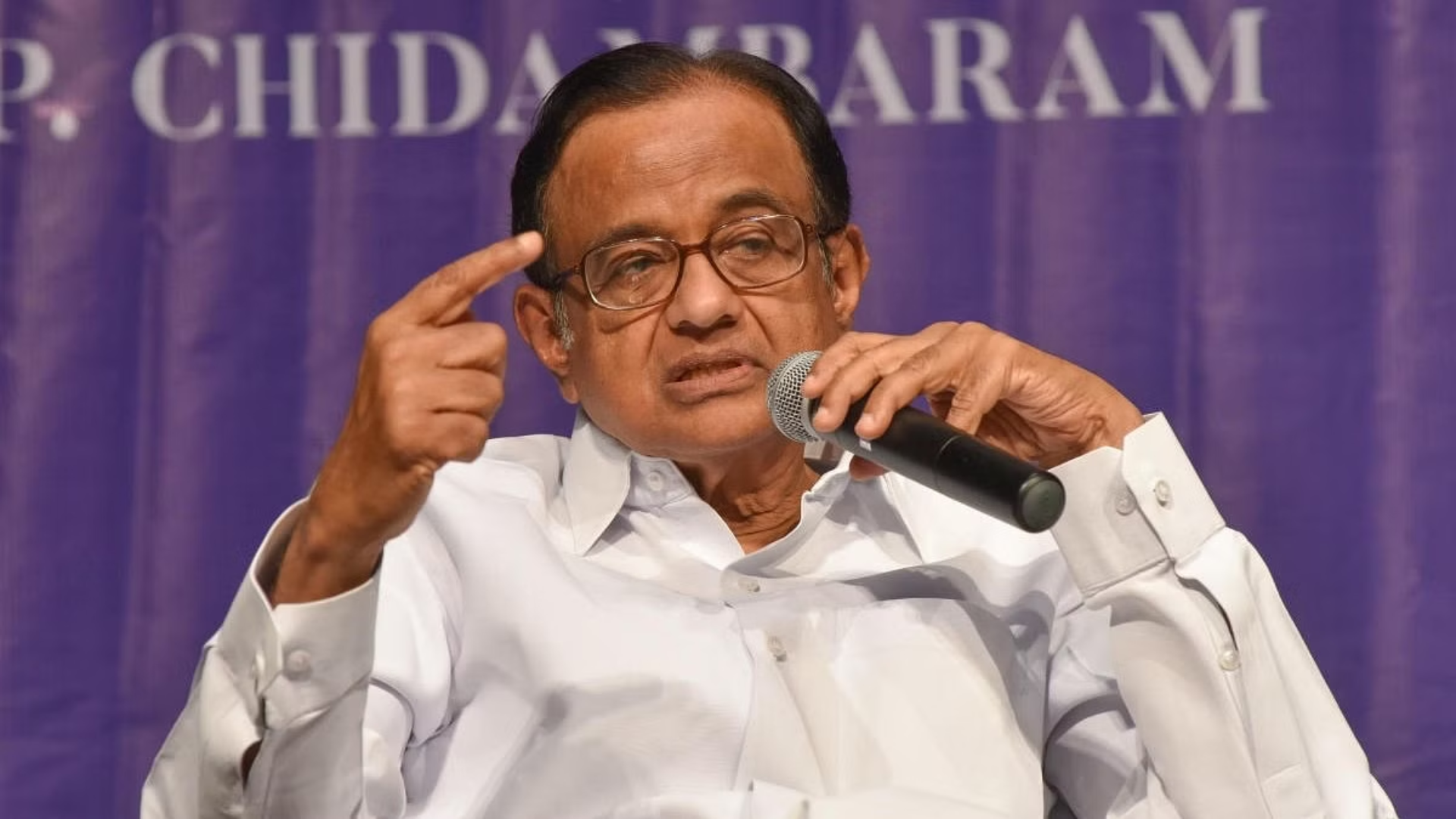Senior Congress leader P Chidambaram has launched a scathing attack on the BJP-led NDA government, accusing it of transforming into a cult that worships Prime Minister Narendra Modi.
Against the dangers of such a trend, equating it with dictatorial tendencies and emphasizing the Speaking on Sunday, Chidambaram highlighted what he sees as a “grave erosion” of freedom of speech and expression during the ten-year rule of Modi.
Chidambaram’s remarks were part of a broader critique of the BJP’s governance style, which he characterized as moving away from traditional politics towards a cult of personality centered around Modi. He warned need to “restore democracy.”
“If Modi is voted back to power for the third time, he may amend the constitution…We have to restore democracy,” Chidambaram said.
One of the focal points of Chidambaram’s criticism was the contentious Citizenship Amendment Act (CAA). While acknowledging that the CAA was not explicitly mentioned in the Congress manifesto, he pledged that it would be repealed once the INDIA bloc, which he represents, comes to power.
During his address, Chidambaram also expressed confidence in the electoral prospects of the INDIA bloc, particularly in Tamil Nadu and Pondicherry. He criticized the BJP’s manifesto, which he claimed was hastily put together and labeled as “Modi’s guarantee,” suggesting a departure from traditional political processes.
“The BJP constituted the manifesto in 14 days which is not titled manifesto. They called it Modi’s guarantee. The BJP is no longer a political party. It has become a cult and the cult worships Narendra Modi,” Chidambaram said.
“That cult worship in India has started gaining strength and will lead to dictatorship,” he said.
Chidambaram’s comments come amid a charged political atmosphere leading up to elections, with discussions centered on governance, democracy, and fundamental rights. He highlighted unemployment as a significant challenge facing the country and emphasized the Congress manifesto’s focus on job creation and wealth generation, contrasting it with the CPI(M)’s silence on these issues.
The promise to repeal the CAA in the first parliamentary session under an INDIA bloc government adds a specific policy stance to Chidambaram’s critique, framing it within broader electoral promises and political agendas.
“CAA will be repealed in the first session of the Parliament when the INDIA bloc comes to power,” Chidambaram added.
As the political landscape continues to evolve, Chidambaram’s remarks serve to ignite discussions on governance, democratic principles, and the role of political parties in shaping India’s future.







